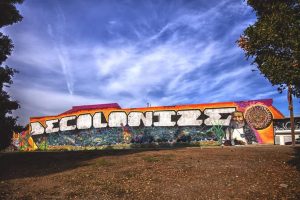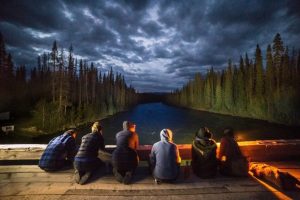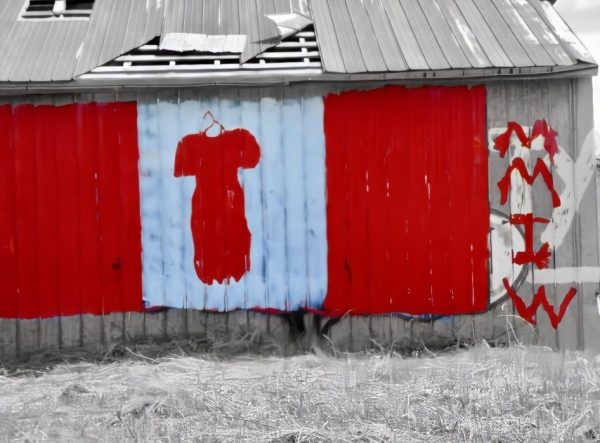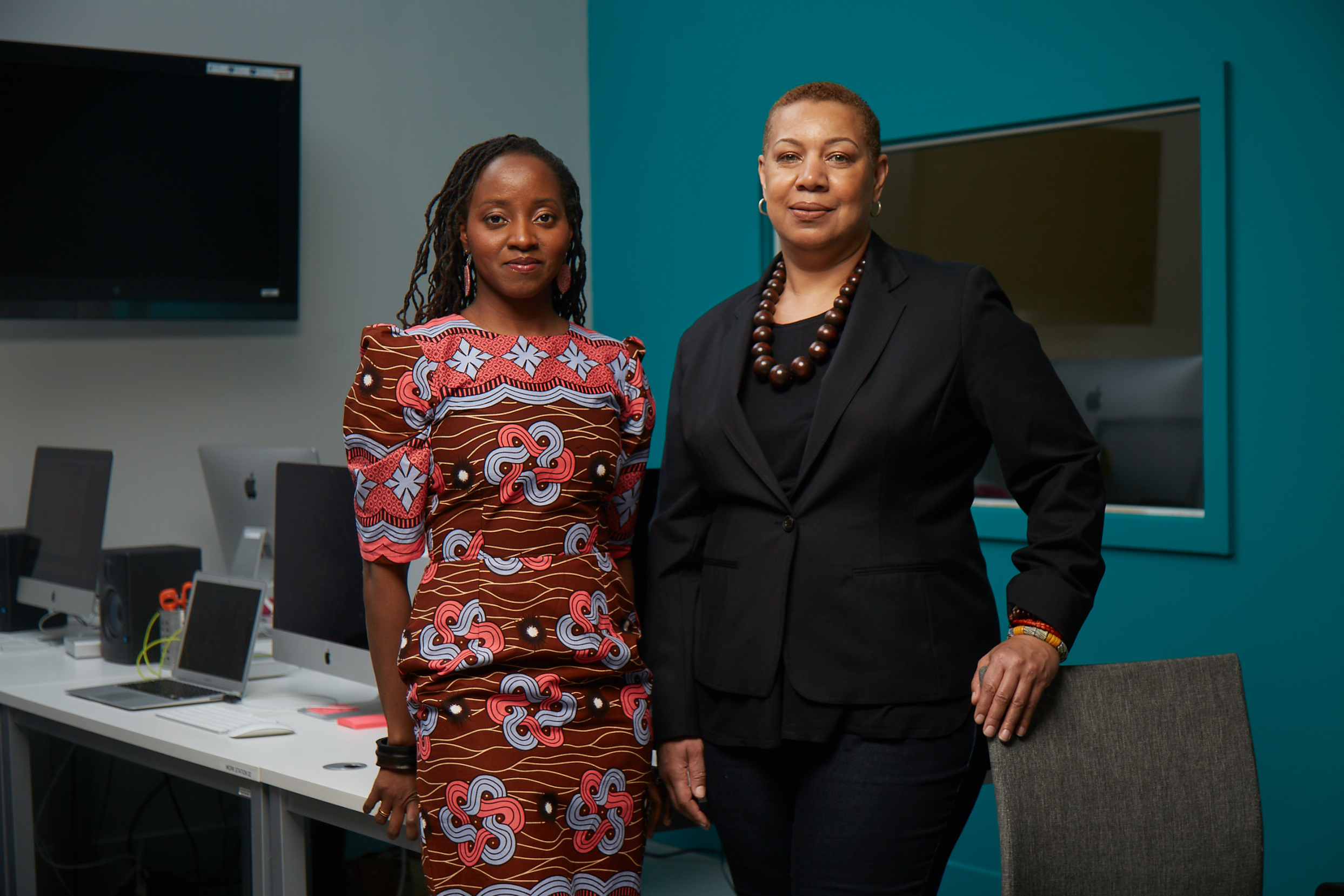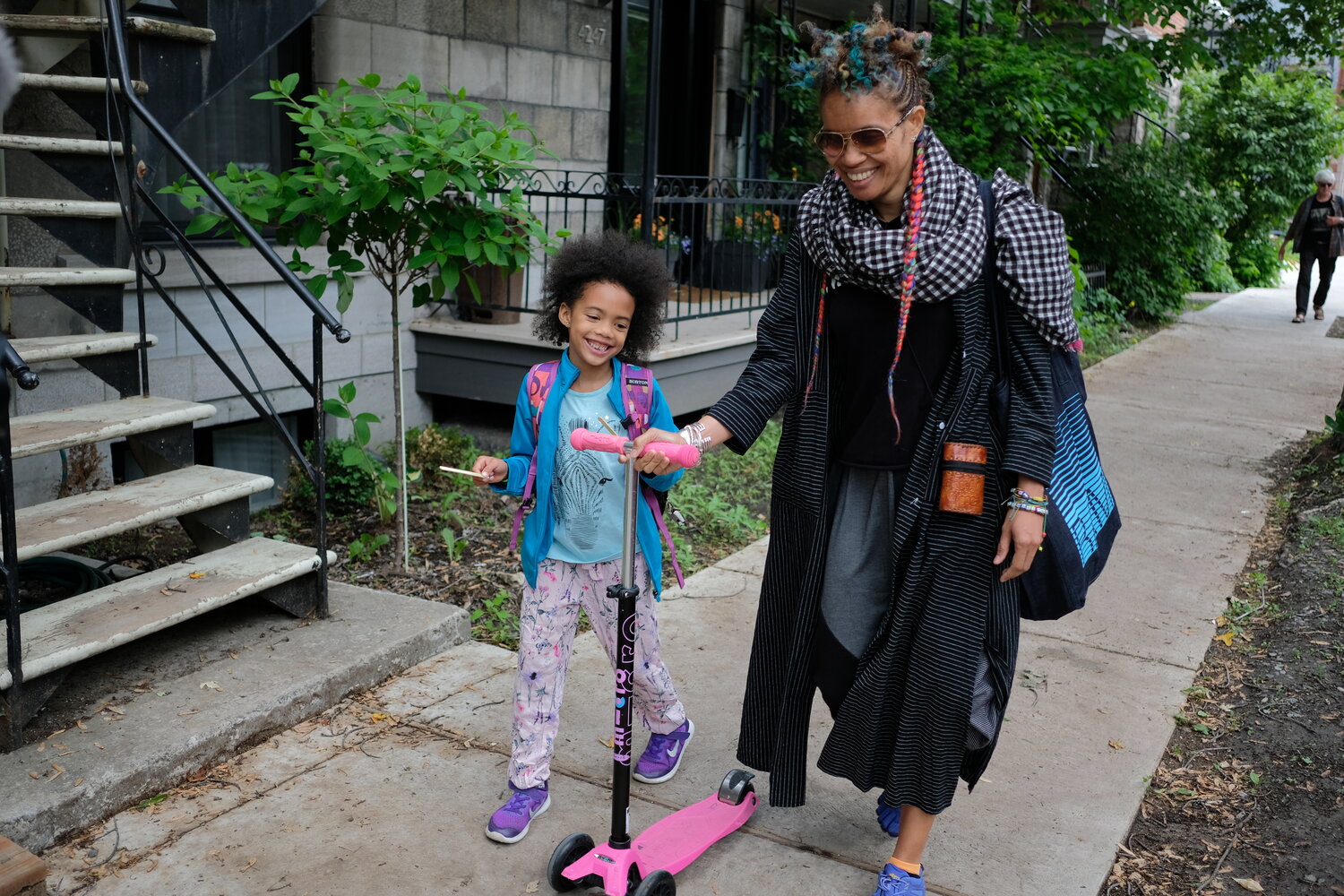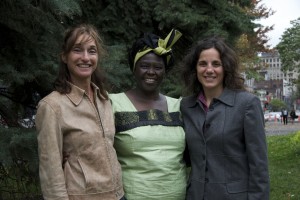For each project, Oya has to chase money from a number of sources. For Mothering in the Movement, the filmmakers secured funding from the National Film Board and CBC. They have funded other projects through the Canadian Media Fund and Ontario Creates, and also work on commissioned projects for universities and arts organizations.
Given that funding is on a project basis, Oya’s team is composed primarily of freelance creatives and contract workers. They scale up, hiring production managers, line producers and other staff during production, and scale down between projects.
Still, George and Duke encourage input from everyone and strive for collaborative decision making, attributing Oya’s success to its nonhierarchical and decolonized structure. While everyone has their own role and responsibilities during production, George says that
“lots of things happen on consensus.”
As way to give back to their community, George and Duke created Black Youth! Pathways to Industry Program (BYP2I), which helps Black youth gain experience in the digital media, film and television industry by providing mentoring and networking opportunities as well as on-site training. Duke’s brainchild, the BYP2I program is a three-year, industry-led initiative supported by the Ontario Ministry of Children and Social Services. Oya has hired on graduates as set photographers, production assistants and editors.
Do the Hard Thing
While working together has made things easier, George and Duke both say that being documentary filmmakers is far from easy. Layer on the added challenge of being women and Black working in an industry that is primarily male and white. Then there are the stories they want to tell about being Black in Canada. That’s not an easy sell to funding agencies. Says George: “We’ve had to explain why stories from the Black community in Canada are Canadian stories and why they’re relevant to the rest of Canada.” They get questions, such as, “Why would someone in a small town of Alberta care about the Black community in Toronto?” Yet funders would rarely ask a white filmmaker this: Why would someone in a large urban Black community in Toronto care about the white community in a small town?
Still, what brought the two together, and what keeps them together, is their drive to tell Black Canadian stories, so critical to the country’s history, though often forgotten. “Stories are important because history tends to repeat itself,” says Duke, “especially when we don’t acknowledge what has happened and we don’t try to make changes.”
The two filmmakers say the ongoing protests sparked by the killing of George Floyd has reaffirmed their belief in the work they’re doing.
Says Duke: “Sometimes when you’re an artist, you make work and you have to wait for society to catch up. Timing is everything, and so although there’s been a lot of heartache, hard work and sweat equity in our careers…we feel relieved at this moment because now it seems like we don’t have to do so much educating about the context. We’re seeing a shift. People are coming to us.”
Says George: “I feel like the world has finally caught up to what we’ve been standing on rooftops yelling for quite some time. It kind of feels like now they’re ready to listen.”
Publishers Note: Oya Media Group is a participant in Canada’s first feminist accelerator program for womxn in digital media, Fifth Wave Labs. The Fifth Wave is a year-round program offered by CFC Media Lab and its partners to support the growth and development of women entrepreneurs in the digital media sector in southern Ontario. Fifth Wave Connect, the pre-accelerator program is currently accepting applications here. All enterprise founders in the Fifth Wave community are selected for both their potential and commitment toward weaving intersectional feminist ideals of equity and fairness into sustainable and scalable business growth strategies. Fifth Wave Initiative is committed to 30% participation by members of underrepresented groups. The Fifth Wave is a LiisBeth Media partner.
